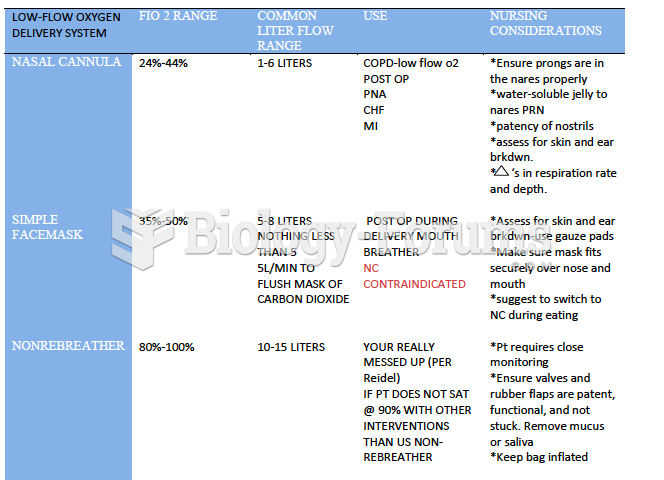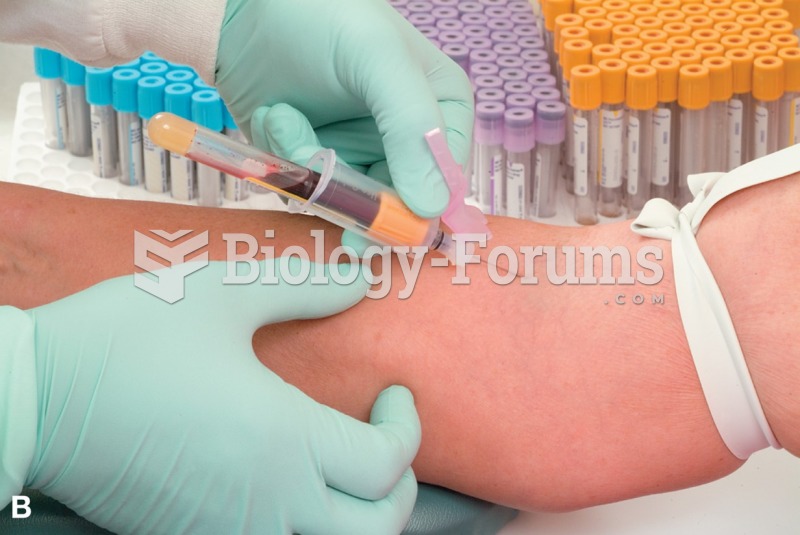|
|
|
There are approximately 3 million unintended pregnancies in the United States each year.
Common abbreviations that cause medication errors include U (unit), mg (milligram), QD (every day), SC (subcutaneous), TIW (three times per week), D/C (discharge or discontinue), HS (at bedtime or "hours of sleep"), cc (cubic centimeters), and AU (each ear).
After a vasectomy, it takes about 12 ejaculations to clear out sperm that were already beyond the blocked area.
For pediatric patients, intravenous fluids are the most commonly cited products involved in medication errors that are reported to the USP.
Only 12 hours after an egg cell is fertilized by a sperm cell, the egg cell starts to divide. As it continues to divide, it moves along the fallopian tube toward the uterus at about 1 inch per day.







